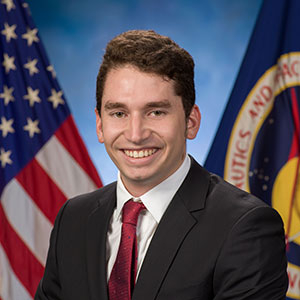As an engineering technician intern at the NASA Johnson Space Center Rapid Prototyping Lab (RPL), Pedro Saiz has had undreamed-of opportunities to gain real-world applied industry experience during the past year. The computer engineering technology senior in the University of Houston College of Technology began his internship in late fall 2017 through an independent study project supervised by engineering technology professor, Dr. Driss Benhaddou. Saiz worked with a team of other student interns and NASA engineers on an Advanced Caution and Warning System for Autonomous Spacecraft (ACAWS) project, still under development. The team’s collaboration on the creation of an integrated simulation for a future Orion Spacecraft mission earned the “Johnson Space Center Director’s Innovation Group Achievement Award.”
The goal of the ACAWS is to monitor the mission from launch through splashdown and display information about possible system failures and their impact. “In order to achieve this successfully, all the systems of the spacecraft required evaluation and models that were monitored and assessed very closely. Our team was challenged to create nominal metadata data that flight controllers would expect to see during the mission,” said Saiz. The team created failure data to test the ACAWS, detect impacts, and display information with the root causes of system issues. Whenever there was a need for an update to the model or data, the process usually took a full workday. Using a combination of powerful computer software applications tools reduce the update time to less than 10 minutes, the team significantly sped up the test time.
Saiz said, “I enjoyed the opportunity to learn about teamwork, engineering, aerospace, software development, hardware development, and mission operations. With graduation just around the corner, I feel more confident about my ability to land a full-time position.”
